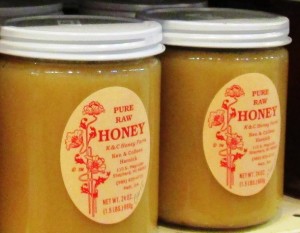By Megan Barber, Wellness Buyer, Co-op Owner
Imagine a world of fluffy cupcakes, never ending pizza, ice cream sundaes, and mountains of glorious candy. In a perfect world, we would all eat delicious, addictive food in abundance without ramifications like heartburn, bloating, and indigestion. And unfortunately, until we can get to that perfect world, which I’m hoping comes along soon, we need to take a look at what we’re eating and how we can help our bodies cope with the ingredients we consume. Enter digestive enzymes.

Without enzymes, even though we may eat a balanced diet, we could not absorb the nutrients our bodies need to survive. Digestive enzymes are proteins that start chemical reactions, serving to breakdown food particles into small components which are easily absorbed by the body. They are produced by glands in the mouth, stomach, pancreas, and small intestine. In severe cases, the inability of the body to absorb enzyme processed particles could lead to unhealthy weight loss and malnutrition.
Besides being produced by the body, food enzymes are naturally found in raw, fermented, uncooked, and minimally processed foods where, when consumed, they help digest those foods for better absorption. Cooked and processed foods often have lower enzyme content because heat destroys the proteins before they are able to be consumed. Foods high in these food-enzymes include papaya, seeds, avocados, coconut water, and raw honey, just to name a few.
Main Digestive Enzymes and their Functions:
Amylases: Starch into sugar
Sucrase: Sugar into glucose and fructose
Proteases: Proteins into amino acids
Lactase: Milk sugar into glucose and galactose
Lipases: Fats into components
Maltase: Maltose into glucose
Vegetarians and vegans typically have a high fiber diet, resulting the occasional need for an enzyme boost. Some enzyme aids are derived from fungi and they assist in the breakdown of fibrous foods. Enzymes derived from fungi are commonly used, the most potent, and survive stomach acid well. Even if you do not follow a vegan or vegetarian diet, fungi enzymes may be the best enzymes to take for your body’s needs.

Lactose intolerance occurs when the body’s digestion slows and does not make enough of the lactase enzyme to break down milk sugar in dairy products. There are some lactase enzyme supplements that could help the body with dairy consumption, but only in the right dosage and ratio to consumption.
Aging and chronic stress are additional reasons why some people may benefit form digestive enzymes. With age, digestion often slows and supplementing with enzymes may be able to boost the break down and absorption of food nutrients. Chronic stress occurs when your body is constantly in flight or fight mode, so your body is focusing mainly on whatever is causing the stress rather than promoting digestion, which then falls low on the priority list.
Digestive enzymes in the market place come in a wide variety; including single enzymes, multi-enzyme combinations, and different potencies. If you are considering taking a supplement, you should always consult your physician to make sure supplementation is necessary, and to establish the right blend of enzymes in the right dosage for your body’s specific needs. Seeing a physician can also help rule out more serious medical conditions.
Additional resources:
http://health.usnews.com/health-news/blogs/eat-run/2013/04/23/digestive-enzymes-help-or-hype
http://www.extraordinaryhealth.com/Article-Landing-Page/Extraordinary-Health-Newsletter-August-12-2015/ContentPubID/1465.aspx

